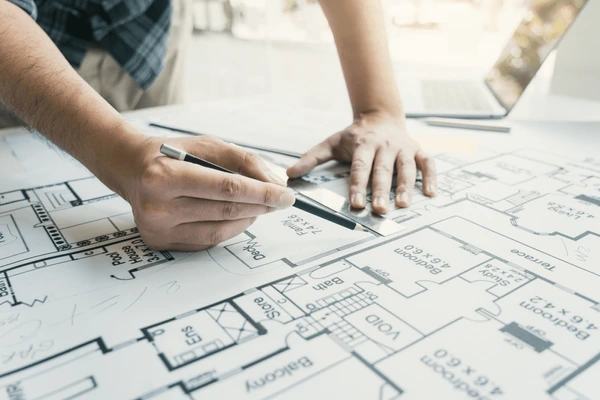Becoming a real estate developer in the USA offers a powerful path to wealth creation, creative expression, and large-scale impact on communities. Whether you’re interested in residential subdivisions, commercial buildings, or mixed-use developments, this guide will walk you through the essential steps to launch and grow a successful real estate development business.
Step 1: Understand What a Real Estate Developer Does
Real estate developers oversee the entire lifecycle of property development—from concept to completion. Key responsibilities include:
- Identifying and acquiring land or underutilized properties
- Securing zoning approvals and permits
- Financing projects through loans, investors, or personal capital
- Hiring architects, engineers, and contractors
- Managing construction timelines and budgets
- Marketing and selling or leasing completed properties

Step 2: Gain Relevant Education and Experience
While there’s no single path, formal education and hands-on experience are crucial.
Recommended Educational Paths:
- Bachelor’s Degree : In real estate, construction management, architecture, finance, or business administration.
- MBA or Master’s in Real Estate Development : Offers advanced skills and networking opportunities.
- Certifications : Consider earning certifications like:
- CCIM (Certified Commercial Investment Member)
- MAI (Member of the Appraisal Institute)
- LEED Certification for sustainable building expertise
Gain Experience Through:
- Internships with development firms
- Entry-level roles in construction, real estate brokerage, or finance
- Partnering with experienced developers on small projects
Step 3: Learn the Legal and Regulatory Landscape
Real estate development involves navigating complex rules and regulations:
- Zoning laws and land use restrictions
- Environmental regulations and impact studies
- Building codes and safety standards
- Tax incentives for certain types of development
Work closely with local planning departments, attorneys, and consultants to ensure compliance.
Step 4: Build a Professional Network
Success in real estate development depends heavily on relationships. Start building your network early:
- Connect with architects, engineers, contractors, and surveyors
- Meet lenders, private equity investors, and joint venture partners
- Join industry associations such as:
- Urban Land Institute (ULI)
- National Association of Home Builders (NAHB)
- International Council of Shopping Centers (ICSC) for retail developers

Step 5: Secure Funding for Your Projects
Financing is one of the biggest challenges in real estate development. Common funding sources include:
- Private Equity Investors : Individuals or groups who fund projects in exchange for equity.
- Hard Money Lenders : Short-term loans based on property value.
- Traditional Bank Loans : Longer-term financing with stricter credit requirements.
- Government Grants and Tax Incentives : Available for affordable housing, green development, or urban renewal.
- Joint Ventures : Partner with other developers or investors to share risk and resources.
Create a strong business plan and financial model to attract investors.
Step 6: Acquire Land or Property
Finding the right land is critical. Look for properties that offer potential for rezoning, expansion, or redevelopment.
Tips for Finding Deals:
- Work with commercial real estate brokers
- Monitor public records and tax auctions
- Network with local landowners and municipalities
- Use platforms like LoopNet, LandWatch, and CoStar
Evaluate each opportunity based on:
- Location and accessibility
- Zoning and entitlement status
- Infrastructure availability
- Potential return on investment
Step 7: Conduct Feasibility Studies and Create a Business Plan
Before committing funds, conduct a feasibility study to assess:
- Market demand for the proposed development
- Construction and financing costs
- Potential revenue from sales or leases
- Timeline and exit strategy
Develop a detailed business plan outlining your goals, budget, risks, and projected returns.
Step 8: Obtain Permits and Approvals
Before breaking ground, secure all necessary permits and approvals:
- Zoning variances or changes
- Subdivision and platting approvals
- Environmental assessments
- Building permits
This process can take months, so factor it into your timeline.
Step 9: Manage the Development Process
Once approved, manage the project from design to delivery:
- Hire an architect and engineering team
- Select general contractors through competitive bidding
- Oversee construction timelines and quality control
- Coordinate inspections and punch lists
- Ensure compliance with contracts and legal agreements
Use project management software like Procore or Buildertrend to stay organized.

Step 10: Market and Exit the Project
After completion, focus on marketing and monetizing your development:
- For residential projects: partner with real estate agents or build your own sales team
- For commercial properties: lease to tenants or sell to institutional buyers
- For mixed-use developments: market to both residents and businesses
Plan your exit strategy early—whether it’s flipping the property or holding it for long-term income.
FAQ: Frequently Asked Questions About Becoming a Real Estate Developer in the USA
Q: Do I need a license to be a real estate developer?
A: While no specific “developer” license exists, you may need contractor licenses if managing construction or real estate licenses if selling properties.
Q: Can foreigners become real estate developers in the U.S.?
A: Yes, though they may need to form a U.S.-based LLC and secure financing outside traditional banks.
Q: How much money do I need to start developing real estate?
A: It varies widely—from tens of thousands for small renovations to millions for large-scale developments.
Q: Is real estate development risky?
A: Yes, due to high upfront costs, regulatory hurdles, and market fluctuations—but the rewards can be substantial.
Q: What are the best markets for real estate development in the U.S.?
A: Fast-growing cities with job growth and infrastructure investments, such as Austin, Phoenix, Raleigh-Durham, and Nashville.
Join The Discussion